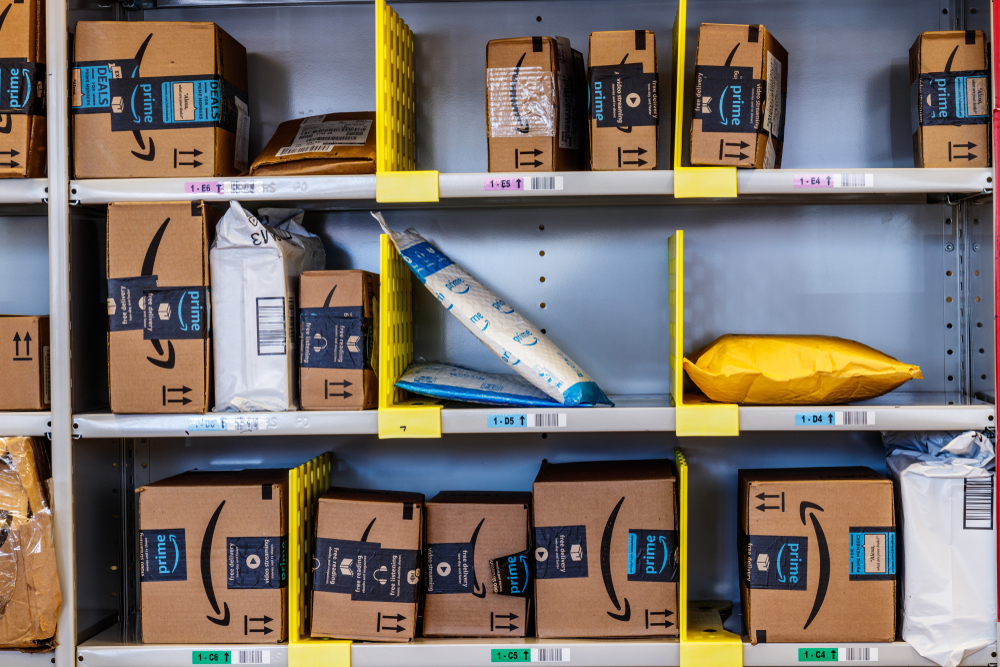While Amazon’s free shipping operation attracts an outsized share of attention in the logistics space, it’s important to understand the true costs of the program.
Connecting with digital consumers is a must for e-commerce merchants and online businesses. From reliable customer service to careful packaging, a lot goes into making sure that online shoppers feel like they’re an important part of the fulfillment process. However, as Amazon has demonstrated, shipping costs play an essential role in where e-commerce consumers shop — and how much they spend while doing it.
As anyone in the logistics space already knows — and as prolific online shoppers are probably aware — Amazon Prime offers customers unlimited free two-day shipping for a flat yearly rate. (A rate that currently clocks in at $119.) While Amazon helped bring about the free shipping craze, they’re not the only name in the game: Walmart recently announced free two-day shipping on qualifying orders and other e-commerce platforms across the internet have tried to match it.
For e-commerce sellers looking to stay competitive and consumers looking to save money, it’s critical to understand what free shipping is and what it isn’t. While consumers have been conditioned to see free two-day shipping as something of a given, it comes with hidden costs that they may well be paying one way or another. Often, online giants such as Amazon are only able to offer free shipping by shifting costs onto other stakeholders in the Fulfillment by Amazon (FBA) and Fulfillment by Merchant (FBM) processes.
By knowing how this kind of “free shipping” works whether you’re fulfilling orders yourself through FBM or relying on Amazon to do so through FBA, it’s possible for online merchants to offer competitive alternatives. And by working with an experienced logistics partner who can bring reliable and affordable shipping to your supply chain, you can pass those savings on to your customers.
Understanding Amazon’s Model
Amazon’s free shipping program has relied on raising costs elsewhere since its launch. For instance, the online giant’s Prime service began by charging $79. The fee increased to $99 in 2014 and rose again in 2018 to $119. These hikes come as Amazon announced that it spent $27.7 billion on total shipping costs last year.
However, free two-day and one-day shipping from Amazon isn’t funded exclusively by the cost of a Prime membership. As e-commerce merchants who currently sell or who have looked into selling with Amazon through FBM or FBA know, the platform charges hefty fees to operate on its marketplace. These fees can quickly become onerous for modest businesses and new e-commerce sellers, with standard-sized inventory storage costs quadrupling at certain times of the year for FBM. Shipping for single-item orders handled through FBA can even cost as much as $8.00 per shipment.
For businesses contending with low margins, the fees Amazon charges to underwrite its free shipping infrastructure can be cost-prohibitive. In order to accommodate them and still turn a profit, many sellers have to raise the prices of their products, essentially charging consumers for what may have initially seemed like free shipping.
How 3PLs Can Help Maximize Efficiency
For shippers looking to offer their customers the best possible shipping value without dealing with Amazon’s fees, third-party logistics partners (3PLs) can help. By maximizing supply chain efficiency and cutting unnecessary expenditures, sellers can do more than improve internal business functions — they can work to minimize what operational costs get passed on to their customers.
Whether their goal is to offer free shipping on qualifying orders or provide consistently low rates to customers, shippers can turn to logistics experts to make it happen. For instance, online merchants can tap into their 3PL’s existing fulfillment infrastructure such as warehouse, transportation, and order management systems to exercise greater strategic control over their inventory, shipping, and multi-channel fulfillment operations.
Working with a Trusted Logistics Partner
While larger corporations may have the resources to handle their logistics operation in-house, small and mid-sized businesses looking to stake their claim in the e-commerce landscape likely don’t. Accordingly, they should consider working with a 3PL capable of streamlining their supply chains and passing savings on to their customers. Backed by industry-leading logistics support, shippers can deliver a seamless e-commerce experience to consumers — all without having to make costly capital investments themselves.
Primary Logistics has the infrastructure and experience SMBs need to stay competitive in a fast-paced, volatile marketplace. By leveraging the know-how of our award-winning logistics professionals and tapping into our industry contacts, e-commerce merchants can offer consumers the best possible shipping value for their purchases.
Whether you’re looking for a comprehensive e-commerce solution or targeted support with your warehousing and distribution operation, Primary Logistics is standing by. Reach out to our team today to learn more about how we can help you maximize efficiency and update your shipping program.
If you’d like to learn more about how award-winning shipping and logistics services from Primary Logistics and Primary Freight, contact us today at (800)-635-0013.
